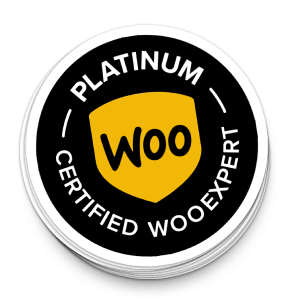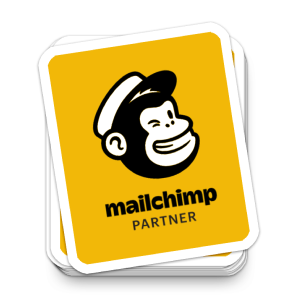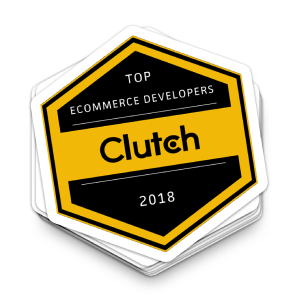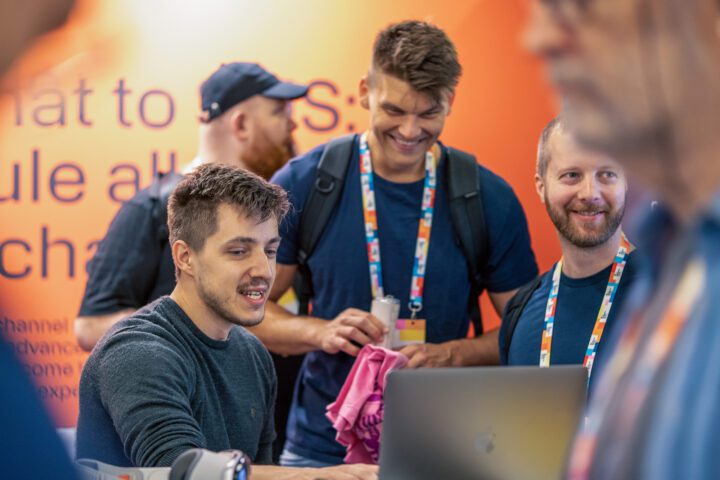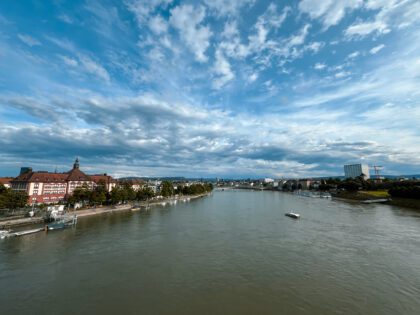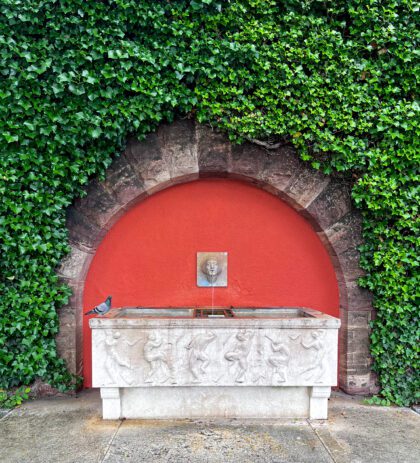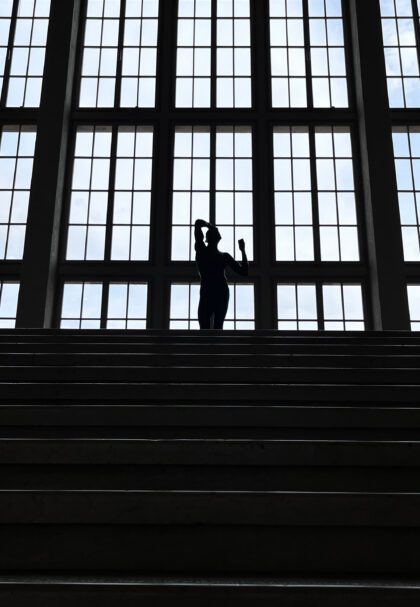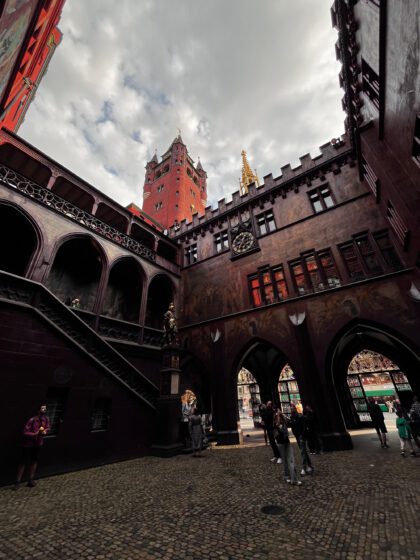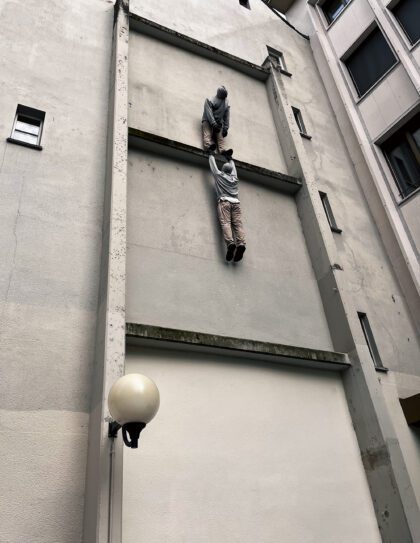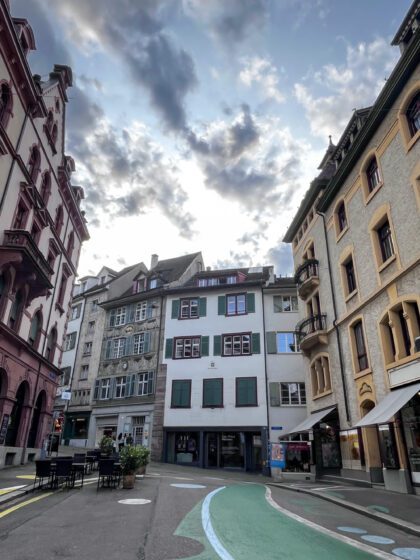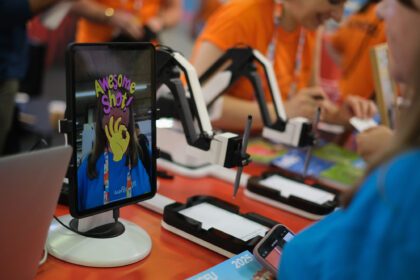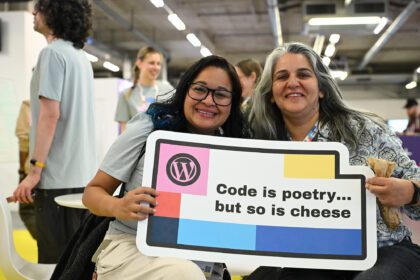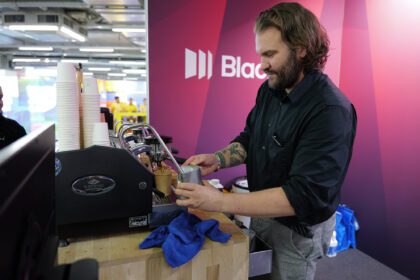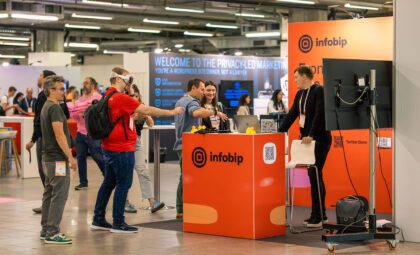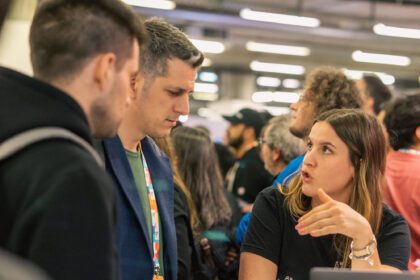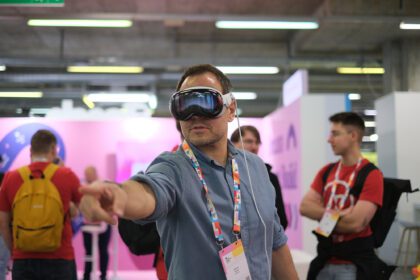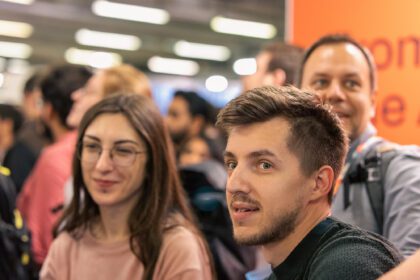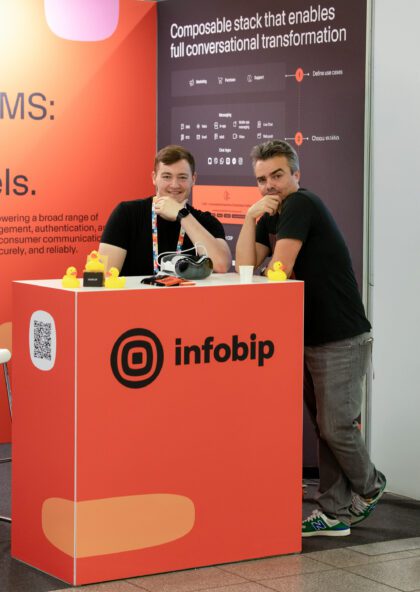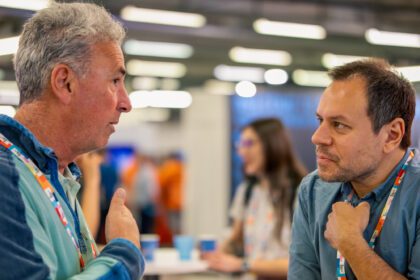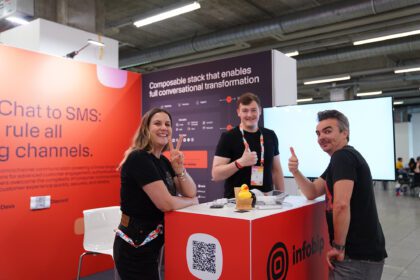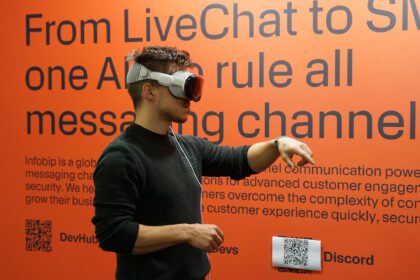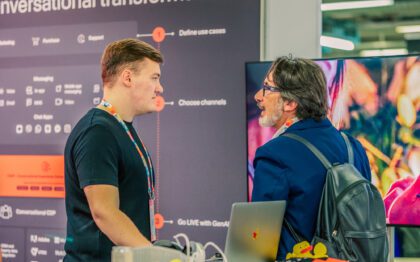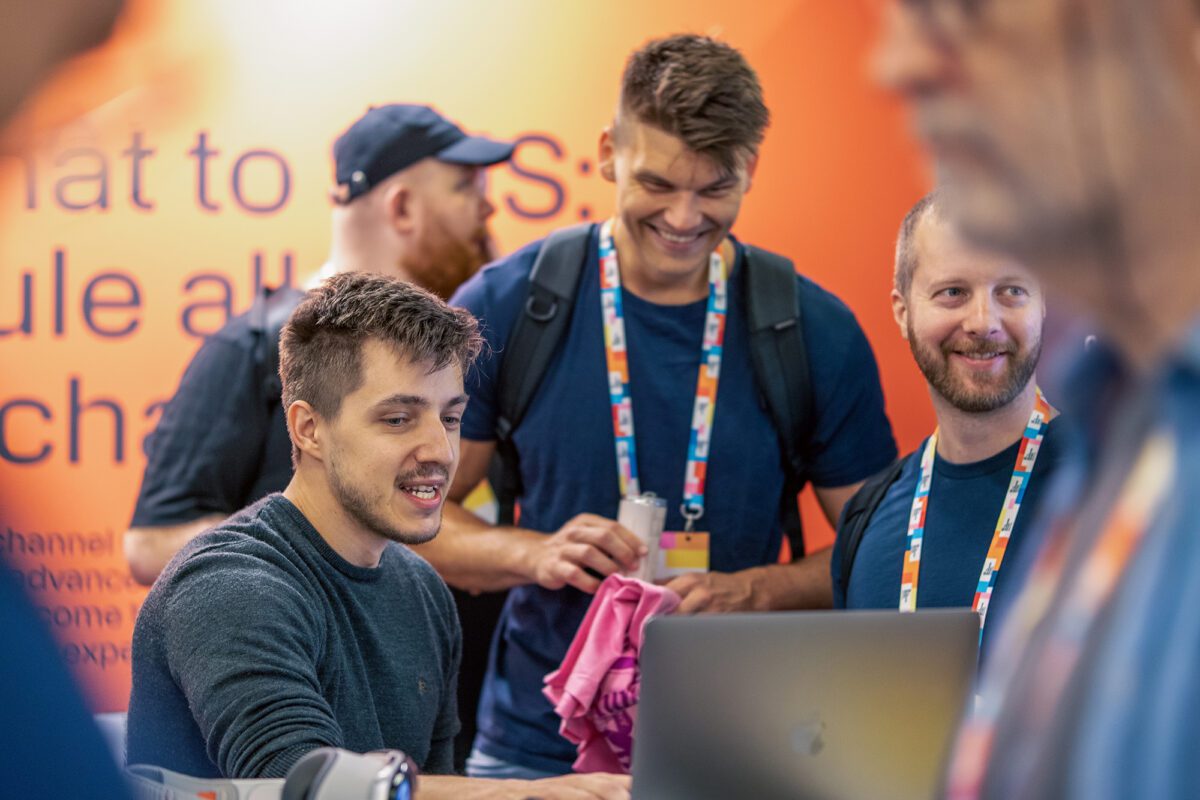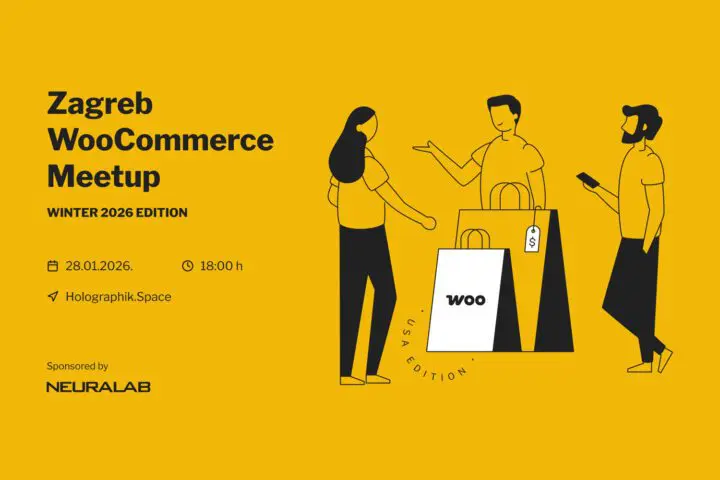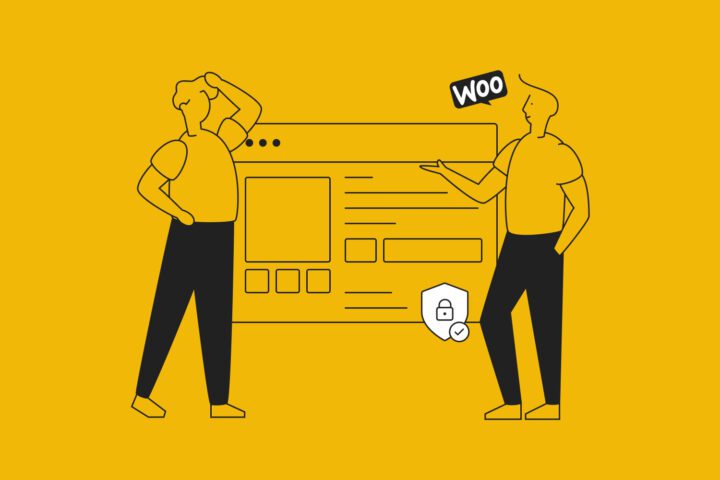WordCamp Basel 2025 re-cap: Looking for wiener schnitzels in a sea of noodles
WordCamp Europe 2025 in Basel showcased WordPress at its most mature and strategic. The event brought together 1,723 professionals from 84 countries for essential discussions on accessibility implementation, sustainable development practices, and enterprise-grade solutions. WCEU proved that WordPress now powers critical business operations across industries, supported by a community balancing innovation with practical implementation.
Basel hit me like a beautifully expensive slap in the face. €6 for a coffee that would cost €2 in Zagreb. €15 for a sandwich that barely qualified as lunch. Shit out of luck trying to find lunch between 2Pm and 6PM, because every kitchen is closed. And when you do find something open it’s nothing authentic; Swiss seem to love asian food! Our fingers got blisters scrolling on Google Maps to find a (relatively) affordable fondue/wiener schnitzel joint…
But damn, the city is gorgeous! All medieval charm meets modern efficiency, with the Rhine cutting through it like a liquid highway between three countries. Almost every building roof is a green one and there’s a small park with impeccably mowed grass on every corner. Also the energy on the streets is very calm. Even during rush hour you feel tranquil. But that is to be expected in a city where the minimum wage is 4000 CHF. People just don’t have that existential angst. That being said, I even ventured to the outskirts of the city in my quest for a record store and felt unthreatened amongst the doner kebabs and brothers on the corners asking me to buy weed. The Swiss precision state of mind is apparently an easily digestible pill; especially in Basel, the world’s most important pharmaceutical hub.
WordPress got a Swiss makeover
Walking from my hotel to the Masseplatz Basel I couldn’t shake the feeling that something fundamental had shifted. The usual WordCamp energy (that chaotic mix of seasoned developers, curious beginners, and passionate garage-tinkers wearing shorts and flip-flops) felt different. More polished. More “Suit up!”. More… expensive. The numbers told the story: exactly 1,723 attendees from 84 countries across three days, with over 20,000 joining via live stream. For context, that’s significantly smaller than previous WCEUs. As one attendee from Amsterdam put it perfectly: “Basel filtered out all the hobbyists and kept the professionals.”
The Congress Center Basel was undeniably impressive: 100% renewable energy, locally sourced materials, and accessibility features that put most venues to shame. Impeccable interior design, clean and available restrooms, AC turned on just the right temperature, Sony FX6’s recording the live stream… But there was something almost too perfect about it all, like WordPress had gotten a Swiss makeover and lost some of its punk charm in the process. I’m still not sure if that’s a plus or minus in my notebook.
The expo area was absolutely next level! By far the best layout I’ve seen at any WordCamp. Walking through the first floor amongst all the Legos, stickers and merch was genuinely a joy, which says something about how much thought went into the overall experience. A special shout from my part goes to the Blackwall booth who hired a professional barista from Zurich. The guy brought his espresso gear and fresh coffee (which he himself roasts) and created an eternal queue of caffeine addicts. Yes there were other coffee machines spread out in the venue, but my man knew his stuff and the difference in taste was night and day. I asked him on Saturday how many coffees did he make the previous day, and he said – 850!
When Neuralab met Swiss precision
Neuralab didn’t just attend WCEU 2025 as observers. We were showcasing our new WooCommerce plugin for Infobip’s omnichannel communication & marketing automation platform. After a year of development following a chance meeting at a WordPress meetup, we’d built something that bridges WooCommerce with Infobip’s CSaaS platform. It’s the kind of enterprise-grade solution that perfectly embodied Basel’s professional atmosphere.
Our booth in that beautifully designed expo hall became an accidental case study in Basel’s demographic shift. We hooked over three dozen quality leads – a number that would have been impressive at any WordCamp, but felt almost surreal given the smaller crowd. The questions we fielded weren’t the usual “how much does it cost?” inquiries you get from hobbyists. Instead, visitors asked sophisticated questions about human VS agentic conversation flows, bot orchestration, and Live Chat / WhatsApp eCommerce enterprise use cases.
“What does Infobip do and how are they related to WordPress?” one agency owner asked, clearly thinking about client implementations. Another wanted to know about data synchronization between WooCommerce and Infobip for automated customer journey mapping. The conversations were deeper, more technical, and frankly, more business-driven than we typically see at WordPress events.
Standing there watching our team explain communication templates and API integrations to genuinely interested prospects, I realized I was witnessing Basel’s contradiction in real-time. Yes, the expensive venue had filtered out casual attendees, but it had also concentrated exactly the kind of professional audience that complex solutions need. The irony wasn’t lost on me: here I was, critiquing Basel’s exclusivity while simultaneously benefiting from it. Our plugin, designed for hefty eCommerce operations, found its perfect audience in a crowd that could afford Swiss prices and think in terms of business solutions rather than personal projects.
Lectures: Less fluff, more substance
When not behind the counter of our booth handling questions about enterprise integrations and API endpoints, our team managed to catch a few talks. After years of going to conferences, we’ve developed a sixth sense for filtering sessions that actually deliver practical value without the marketing spiel. Basel’s crowd seemed to demand the same: less “thought leadership” preaching, more actionable insights you can implement on Monday morning. Here are our top 3 picks.
Composer Best Practices by Jordi Boggiano was refreshingly developer-focused! No corporate jargon, no grand visions of the future, just solid technical guidance on dependency management. While everyone else was talking about AI transforming everything, Jordi explained the unglamorous but crucial work of keeping your dependencies updated in an ever-evolving npm ecosystem. Simple instructions, clear practices, and real consequences for ignoring them. It’s the kind of talk that saves you from 3 AM debugging sessions six months later.
How to make your website more sustainable Charlotte Bax pointed out that the ICT industry uses 8–10% of global energy resources (more than aviation) which really puts things into perspective. Building sustainable websites is a necessity for our planet and actually improves user experience, since many sustainability best practices overlap with those for speed and performance. The session’s practical advice was spot-on: choose appropriate hosting plans (don’t over-provision resources you don’t need), use caching, ditch unnecessary plugins, and be mindful when developing or selecting themes – lightweight is the way to go unless you really need custom code. The speaker also warned against overusing animations, which can make sites less accessible for people with epilepsy or sensory sensitivities, and recommended using appropriately sized images, preferably in WebP format, and minimizing custom fonts (swap Font Awesome for vector icons whenever possible). For videos, the advice was clear: host them on YouTube or Vimeo rather than your own server, use thumbnails with preload=”none”, and only load the video in a modal when the user clicks.
Accessibility in reality: Pro helvetia, a Swiss case study transformed what could have been a dry technical presentation into something genuinely inspiring. Jeff Chi used the Pro Helvetia website relaunch as a practical case study, showing how accessibility was embedded into every stage of development rather than bolted on as an afterthought. What made this talk special wasn’t just the technical insights (like fixing logo alt text to say “back to homepage” instead of just “Logo of Pro Helvetia,” or using proper HTML semantics instead of meaningless divs) but how it reframed accessibility from a compliance checkbox into a creative challenge. The speaker made it feel doable rather than overwhelming, sharing real examples from working with “Access for All,” a Swiss organization that reviews websites for WCAG compliance.
The fireside that set everything ablaze
The closing fireside chat with Matt Mullenweg and WP executive director Mary Hubbard was worth the price of admission alone. They discussed upcoming European regulations, the Open Web Alliance in response to EU policies, and perhaps most significantly, announced the introduction of an official WordPress AI team within the project.
The audience Q&A started strong with question from Milana about the FAIR project (Linux-backed open source initiative to decentralize the distribution of WordPress themes and plugins) that had been announced that very day (a day picked not by accident I may add, leaning to the ongoing WP drama). Matt was caught by surprise on this one and expressed they needed more time to evaluate how it might contribute to possible collaboration.
This fireside chat marked a milestone in the evolution of the WordPress community – as it clearly demonstrated that a broader pool of WordPress professionals have (and will take) the reign when needed. The Benevolent-Dictator-For-Life concept in open source projects has its perks and upsides; but it doesn’t come without its negatives. A typical example is when Mullenweg talked that FAIR crew will have possible problems with supply-chain attacks; which launched the whole room into laughter – as he’s the one that did an actual supply chain attack on our beloved ACF ecosystem.
What Basel taught me
By Sunday afternoon, while escaping the Zagreb airport’s own little drama by a mere hour, waiting for my wife to pick me up and cherishing the 2€ Zagreb coffee, I realized WordCamp Europe 2025 had accidentally created the most honest experiment in WordPress community dynamics I’d ever witnessed. We’re at a crossroads between grassroots chaos and professional polish.
The quality was undeniable: better networking, deeper conversations, more immersive talks, more focused business discussions. The venue buzzed with activity despite some rainy weather outside, and spirits were high as old friends reunited and new connections formed. But it came at the cost of the democratic chaos that built WordPress in the first place.
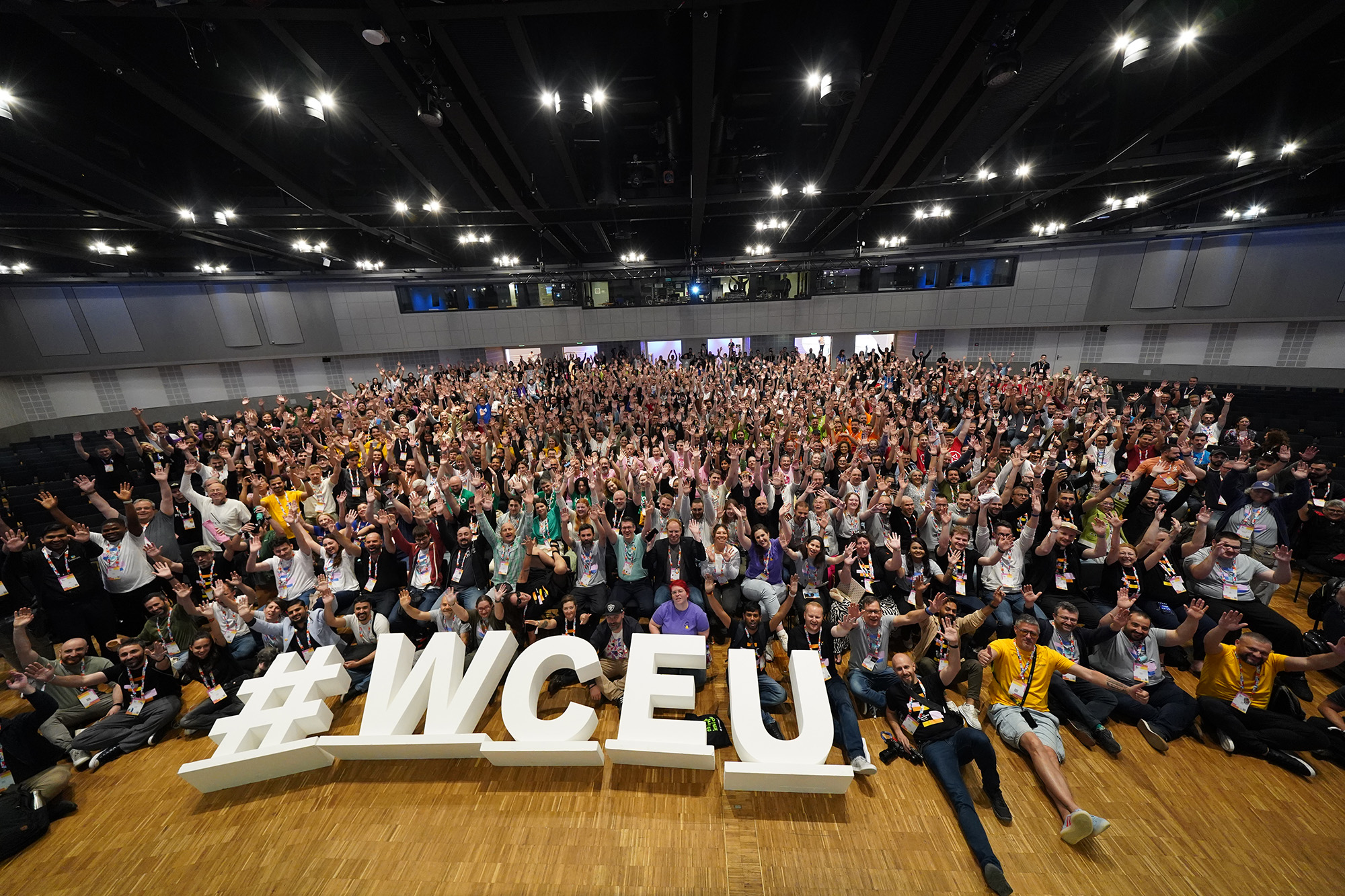
The Swiss are famous for their precision, and Basel delivered that in spades. But precision isn’t always what a community needs. Sometimes you need the beautiful turmoil of different outlooks, economic backgrounds, and experience levels that make WordPress events special. And here’s the kicker – this isn’t just about who shows up to collect stickers and network. It’s about who gets to shape WordPress’s future. Leadership pipelines are built through community participation, mentorship, and access to the conversations that matter. When events become more corporate and professional, they naturally attract people who already move in those circles, potentially missing voices from different backgrounds who might approach problems differently. A freelancer in Lagos, a nonprofit developer in rural Montana, or a student from Kraków building their first plugin all bring perspectives that enterprise-focused leadership might miss. The question isn’t whether Basel’s professional atmosphere was better or worse, but whether the WordPress community can maintain pathways for diverse voices to influence its direction as it continues to evolve.
Speaking of students from Kraków, maybe that’s exactly why the biggest cheer of the weekend came when they announced WordCamp Europe 2026 would be held there. Because Poland represents a return to the grassroots spirit that makes WordPress gatherings special. That hypothetical student building their first plugin? Next year, they won’t be hypothetical – they’ll be in the audience, asking questions, contributing ideas, and maybe even speaking on stage. Sometimes the most valuable insights emerge from unexpected places, wrapped in cultural contrasts, and delivered through experiences that challenge our assumptions.
Some article photos are the work of talented WCEU photographers. You can find the originals here … https://www.flickr.com/people/wceu/
